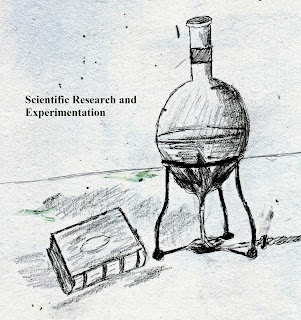An introduction to Scientific Research by E. Bright Wilson
gives an overview of the modern scientific method. The book focuses more on
experimental laboratories, useful formulas, and commonly used instruments than
on social research. The book seeks to collect in one place the general
principles, techniques, and guides for proper procedures. It is a necessary read
for those interested in conducting hard-core research.
The book is written through the eyes of a physical chemist
and this helps to explain its detailed and hard scientific approach. The
concepts offered in the book are valid and it is worth reading even if one is
not working in a physical laboratory. It will provide an understanding for
graduate students that may work in biology, medicine or other physical
sciences.
It also provides a strong overview of pure science and some
of the issues it faces. It moves into other concepts such as cost, morality,
scientific literature, observation, cause and effect, hypothesis, deduction,
models, mathematics and the very process of designing experiments. Likewise,
one will find apparatus design, sampling, analysis, and general errors.
You may be interested in the chapter on the analysis of
experimental data. The interpretation of data is a critical step in the
experimental process. If done poorly the wrong conclusions are realized and
improper scientific discoveries found. The facts are not always facts. When
considering all of the data it may be necessary to go back and ensure the
information drawn is accurate and not a result of extraneous variables outside of
the study.
Generally, once the hypothesis is proposed the researcher
will design an experiment to test it in a systematic way. This can create a
psychological effect whereby one is attempting to validate something they
already believe in drawing likeminded conclusions without thinking about the
alternatives. It is necessary to review all possible explanations to create the
highest level of critical thinking and accuracy.
It is important to remember that validity comes through the
testing of concepts in other places and times. Researchers will attempt
to find the same conclusions by either running the same or similar research.
The more times researchers come to the same conclusions, the stronger the
validity of the study. Science is a social affair that works within a body of knowledge.
Wilson, E. (1990). An
introduction to Scientific Research. New York: Dover Publications, Inc.

No comments:
Post a Comment